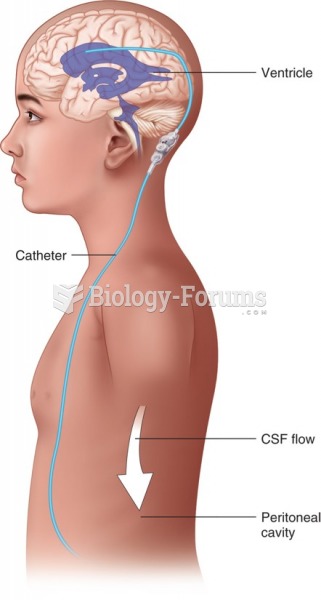|
|
|
Recent studies have shown that the number of medication errors increases in relation to the number of orders that are verified per pharmacist, per work shift.
Once thought to have neurofibromatosis, Joseph Merrick (also known as "the elephant man") is now, in retrospect, thought by clinical experts to have had Proteus syndrome. This endocrine disease causes continued and abnormal growth of the bones, muscles, skin, and so on and can become completely debilitating with severe deformities occurring anywhere on the body.
Human kidneys will clean about 1 million gallons of blood in an average lifetime.
Everyone has one nostril that is larger than the other.
More than nineteen million Americans carry the factor V gene that causes blood clots, pulmonary embolism, and heart disease.







